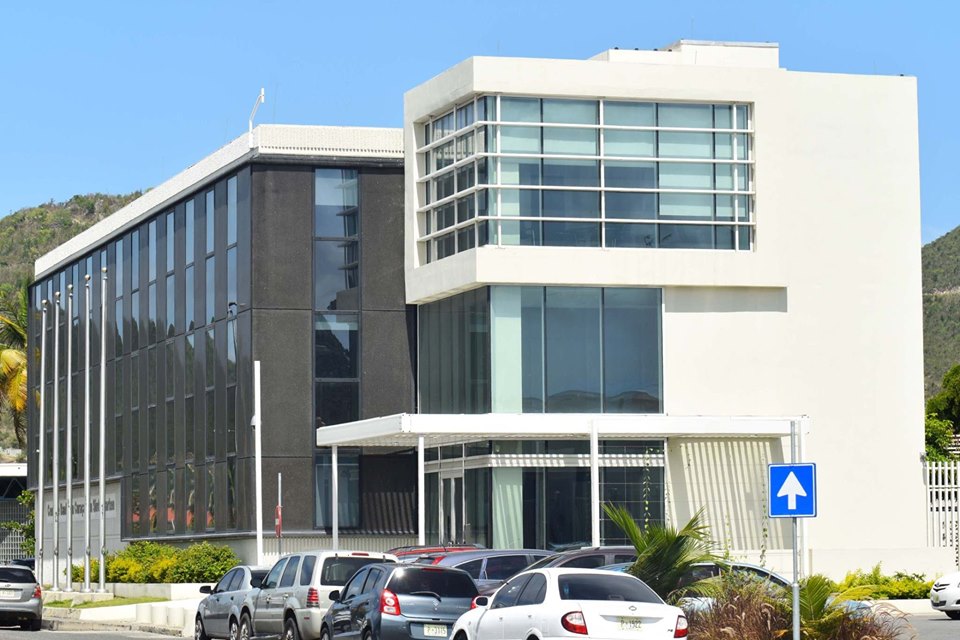Central Bank allows moratorium on all loans

PHILIPSBURG — The Central Bank of Curacao and Sint Maarten already took steps to counter the effects of the corona-virus crisis in March. At least one of these measures seems to be at odds with statements interim president José Jardim made mid-May in a letter to the chairman of parliament Rolando Brison.
The Central Bank announcement dated March 20 (unless it is an error and it should read May 20) establishes that “commercial banks and credit institutions will be allowed to provide a 3 to 6 months payment moratorium on interest and principles of all outstanding loans without having to make adequate provisions.”
It is unclear whether the term “all loans” includes mortgages, but if that is the case, Jardim’s answer to Brison comes to mind. The Chairman of Parliament had asked in a fiery letter to the Central Bank to instruct commercial banks to postpone mortgage payments. “That goes against the supervisory task of the CBCS to safeguard the interest of creditors of supervised institutions,” Jardim answered to that suggestion.
Now the Central Bank allows commercial banks a 3 to 6 months moratorium on interest and principal of all loans. The same moratorium also applies to life insurance companies and pension funds – not for loans but for premiums. In both cases, these financial institutions do not have to make adequate provisions for it.
The Central Bank lowered the pledging rate (the rate commercial banks pay for lending money from it) from 2.5 to 1 percent, it suspended the surcharge pledge on loans over 20 million guilders and it lowered the interest rate on certificates of deposit.
That last measure makes it less attractive for commercial banks to park money at the Central Bank. In May Jardim pointed already out to Brison that commercial banks had stalled 123 million guilders at the Central Bank, an amount that represents 7.5 percent of the island’s gross domestic product.
“The banking system is in a situation of excess liquidity,” Jardim wrote to Brison. “The balances of the commercial banks at the Central bank are much higher than needed to settle their daily transactions.”
The Central Bank also reintroduced an overdraft facility for commercial banks. “The bank aims at guaranteeing the commercial banks’ access to liquidity in case this may be required while maintaining the cost of financing low,” the announcement states.
The measure to suspend the issuance of foreign exchange licenses for transfers abroad was also put in place in March. This applies to transfers larger than 150,000 guilders. Below that amount, licenses are not required. “The extension of foreign exchange licenses will be resumed at a date to be determined by the bank.”
Listed as another “prudential measure” is the decision allowing commercial banks to exceed the debt service ratio (DSR) from the current 37 to a maximum of 50 percent. DSR expresses a bank’s financial commitments as a percentage of its revenue. The general rule is that debts should not be higher than 60 percent of revenue.
With these measures put in place, the Central Bank “aims to enable the financial system to finance the economy, in order to keep the economy running smoothly in these extremely difficult times.”
The (temporary) measures are designed to “support the population and local businesses, to enable financial institutions to meet liquidity demands and to help commercial banks withstand the unforeseeable shocks.”
###
Related links:
Temporary monetary and prudential policy adjustments CBCS
Central Bank shoots down all of MP Brison’s suggestions
CBCS Letter to Chairman Parliament SXM Mr. R. Brison
Brison gives CBCS 2-week ultimatum to take urgent action for St. Maarten
MP Buncamper questions money transfers


























